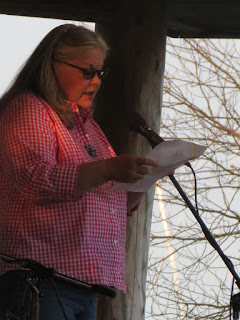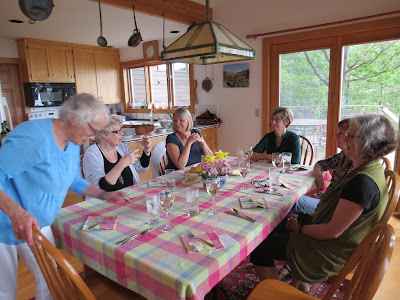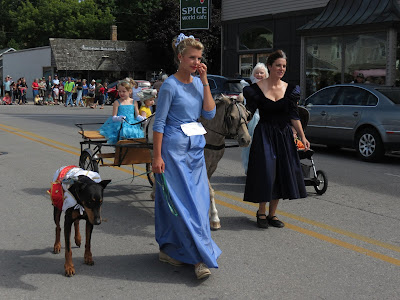 |
| Good morning! |
I’m
coming back today to a book that cheered and energized me last week. In Switch:
How to Change Things When Change is Hard, Chip Heath & Dan Heath don’t tell us
that change is ever easy, but they do make a convincing case that we can make
change easier by approaching it differently.
Here’s
how too many of us (yes, me, too), often react, when people aren’t making changes we
want them to make:
“How
can they be so stupid? And lazy! Can’t they see past their noses? Can’t they use
their heads?” Sartre
said (or, at least, is said to have said), “Hell is other people,” and who hasn’t felt frustration at
the apparent intransigeance of other people? But every single one of us is
an other.
We meet face to face or online or over the phone: to me, you are the other. To
you, I am. And that’s just how it is.
Chip
Heath and Dan Heath – and I’m going to call them H&H from now on – cite numerous research studies and tell many true stories in
every chapter. They are not simply “brainstorming” or speculating on how change
might be
made easier. Their tips and recommendations are clear and specific and backed
up by results. And whether I want to change myself or someone else or
a whole group of people, the basic empirical insights hold. H&H tell us
story after story of changes that worked, changes initiated by people with
no special authority or power other than an ability to see how to do things
a different way.
Do
human beings "stubbornly resist" change? Maybe the change they are asked to make
isn’t clear to them. “What looks like resistance,” the authors say, “is often a
lack of clarity. So provide crystal-clear direction.”
For
instance, “Eat a healthier diet” is not specific. – And here I have to
interrupt myself to say I don’t at all like the authors’ example, because it
has to do with buying and drinking milk with only 1% butterfat rather than
whole milk, and I am not at all convinced that whole milk is unhealthy (in fact, it drives me crazy that most of the yogurt in the grocery store case is nonfat!), but
that’s not the point. The point is to give clear, specific instructions, and
make them easy to follow.
H&H
also say, “What looks like a people problem is often a situation problem.” All
of us depend on routines and habits to get through the day, and if we have to
think too much, uncertainty about what to do can be paralyzing. Too many
possible choices or an ambiguous situation will make our minds anxious, and when
anxious, we revert by default to a familiar path, seeking our comfort zone. If
we can’t, studies have shown that operating outside a comfort zone for too long
results in deteriorating task performance. The mere experience of applying
willpower to not eating a plate of cookies left in the room with them resulted
in subjects performing more poorly on a task than other subjects without the
antecedent test of will. Self-discipline wears us out. We only have so much energy for it. So we’re better off
devising little tricks to keep ourselves in line.
In
order to brave a new path, we also need a motive. Emotion is the
“elephant,” in the book’s terms, intellect the “rider,” though I’ve avoided
that language here. The important point is that to effect change, in ourselves
or others, we must appeal not only to the intellect but also to emotion.
Here’s
an astonishing revelation from early in the book. Can you believe that of the
24 most commonly used English words for emotion, only six are positive? Our
language, and probably our brain itself, is more alert to threats than to
happiness, probably for reasons important to survival – but still, that’s what
we see all too often in each other, even when it isn’t there. I see not what
you’re doing right but what you’re doing wrong, not the good you’ve done but
the good you’ve failed to do. And how motivated are you by criticism? Me, not
very!
All
the logic in the world does not induce people to change without emotional
appeal. Argument and reason are good, often necessary, but by themselves
insufficient. Okay, what kind of emotional appeal? How about fear? Fear is a strong
motivator, H&H acknowledge, but works best in the short term. It doesn’t
work all that well for problems requiring incremental change over the long
term. Why would that be?
Well,
fear is one of those negative emotions.
When you’re angry, your eyes narrow and your fists clench and you get ready for confrontation. When you’re disgusted, your nose wrinkles and you avoid whatever has grossed you out. When you’re afraid, your eyes grow wide and your body tenses up and prepares to flee. On a daily basis, then, negative emotions help us avoid risks and confront problems.
Narrowed
eyes, clenched fists, tense body – that’s how we respond when we’re in the grip
of a negative emotion. Fight or flight! says the mind. Don't confuse me with more options! But that narrowing effect also works on our thoughts and
doesn’t help when what we need is a broader vision, when we need to innovate,
and to grow.
The positive emotion of interest broadens what we want to investigate. When we’re interested, we want to get involved, to learn new things, to tackle new experiences. We become more open to new ideas. The positive emotion of pride, experienced when we achieve a personal goal, broadens the kinds of tasks we contemplate for the future, encouraging us to pursue even bigger goals.
Appeals,
therefore, to positive emotions – excitement, hope, optimism – motivate people
to embrace change.
One
tip the authors give is to focus on success, however small, and build
on it.
They call it “finding the bright spots.” Say your son was failing all his
junior high classes but this semester managed to get a B in one of them. Talk
to him about that good grade, help him find out what made the difference in that class and how he
might be able to extend his success into other subjects. In general, don’t look
for problems but for what’s working.
Another
is to shrink the change. Don’t ask for a big change all at once. Show people ways they have already, without being aware of changing, taken the first couple of steps, and it's like magic!
 |
| He's on his way! |
It
also helps to provide “environmental tweaks.” These, H&H say, “beat self
control every time,” whether it’s my own behavior or someone else’s I want to
change. One simple example (we’ve use this in our home) is to use smaller
plates on the dinner table. Rearranging furniture is another way to tweak the
environment and change the situation. Shaping the environment changes behavior,
and it’s easier, more efficient, and more pleasant to shape new behaviors that
way than by hectoring and scolding. You don’t even have to talk about it!
I’ve
hardly done justice to this book, because I’ve been boiling down to
prescriptions what the authors present in exciting stories of change. You just
need to read it for yourself. Switch is written largely (not exclusively) from and with a business perspective, but the implications go way beyond. In fact, I can hardly think of a realm where they would not be appropriate.
So, from what I’ve said so far, let me ask what lessons you would draw from the
H&H prescriptions when it comes to working for political change? ??? If
you’re not
feeling optimistic yet, blame it on me and not on the authors, go to the
library, and give H&H a reading for yourself. (I’ll order the hardcover for
anyone who requests it; unfortunately, the book was never issued in paper. I
also have 2-3 used copies winging their the way to me.)
If
you buy the book from me and read the whole thing and don’t feel the faintest glimmer of
hope, I’ll cheerfully refund your money and take the book back, knowing that it will inspire someone else. What I
hope for, really, is a community of energized, hopeful people ready to go at
change in a whole new way. Maybe we can help each other? I’d love to travel hopefully into the future! Wouldn't you?



































































